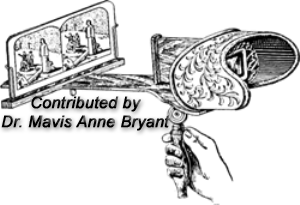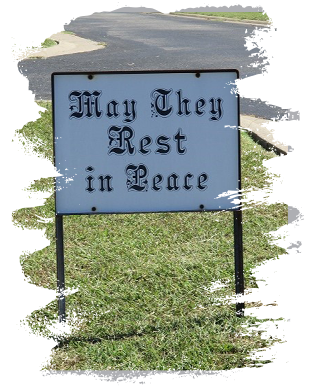The Sunday Gazetteer Sunday, November 6, 1898 Father Crowley has been presented with a beautiful holy water font for St. Patrick's church. Messrs. Bergin & Bowman, who just erected J.D. Quinn's massive monument in Calvary cemetery, gave this rich and artistic font, which is made of Vermont marble, and reflects much credit on this Ft. Worth firm. The Sunday Gazetteer Sunday, April 30, 1899 pg. 4 DEATH OF COL. J.D. QUINN This (Saturday) morning Col. J.D. Quinn passed peacefully away at his home, 417 W. Main street. He had experienced several bad days recently, and those who have been the nearest to his bedside knew that the end was not far off. Col. Quinn died very peacefully. There was no struggle to indicate that the end was so near. Col. Quinn had been an invalid for over two years, the first symptoms of the disease which carried him off manifesting themselves about that period. Going to press early this (Saturday) morning it is impossible to give all the events in connection with his life which marked him out as one of the most notable men who have lived in Denison and in the state. Col. Quinn was one of the first to locate here, and has for a number of years been identified with the construction of the H. & T.C. railway. In the hills east of Denison he dug out his fortune. All of the rock north on the H. & T.C. was contracted by him. Until within the past two and three years his life has been a most active one. Even when attacked with the dread disease, cancer, which carried him off, he was loth to forego business duties. At the time of his death the deceased was nearly 80 years of age. He came to this county when a young man from Ireland. His struggle with the world is an epitome of the history of many an immigrant lad who unknown to fame and fortune fought his way to the front. The life of the deceased in Denison is closely identified with every feature that has marked our history from a struggling town to a great city. He possessed all those sterling traits which go to make up a successful business man and useful citizen. In the crude and forcible language of that great editor, Horace Greeley, "he was a town builder." Without his aid and encouragement the Denison of the present time would have been shorn of much of its material greatness. There is no one in Denison who will withhold from him the rich praise which he deserves. His vast charities covered all Denison. With a prodigal liberality he gave to every public enterprise which contributed to our material advancement. This, however, is but a small fraction. His private charities to the Catholic church, to individuals; these are the virtues which have fixed the name of J.D. Quinn upon the hearts of hundreds of people in Denison, across the seas, in every part of our country. He was always kind, always doing good, always befriending honorable effort. He was the personification of frankness, good nature and honor. His courtesy in business affairs made him highly esteemed by his large number of employes. One of the best traits, the crowning excellence of his admirable character, was the strict justice which always marked his intercourse with those with whom he had business relations. All with whom he came in contact were the receipients of courteous attention. That is why he will be lamented. Few deaths that have occurred in Denison will occasion such universal regret. The Gazetteer regrets that it is not acquainted with the early facts of the life of Col. Quinn, it would make eventful reading. The burial will probably take place Monday, and it is understood that Bishop Dunne of Dallas will officiate. In consequence of the death of Col. J. D. Quinn, Father Crowley closed the Catholic fair to-day, Saturday. The Sunday Gazetteer Sunday, May 7, 1899 pg. 4 OBSEQUIES OF COL. J.D. QUINN All that was mortal of Col. J.D. Quinn was laid to rest in the vault at Calvary cemetery Monday evening last at 5 o'clock. At 7:30 a.m. the casket borne by Messrs. J.E. O'Brien, Tom Finn, Barney Finn, B. Carter and L. Eppstein, preceded by Father Crowley and followed by the A.O.H., entered the church and was carried up the center aisle to the foot of the altar. At 8 a.m. requiem High Mass was said by Father Crowley, while the choir chanted the Gregorian Mass for the dead. As the offertory was sung the beautiful hymn, "Nearer My God to Thee," and after the Mass the "Miserere." The altar, sanctuary, choir railing and entrance to the church had been appropriately draped in black. The handsome casket was literally covered with flowers, Nature's tribute to a good man gone. The soft glow of the funeral tapers, the perfume of flowers, the burning incense and the low strains of the organ harmoniously blended with the measured chant of the choir was impressive of sadness in the extreme. Col. Quinn was universally mourned; all day while the body lay in state those who had known him in life as a friend and benefactor, and they were legion and from all walks of life, came to pay the last tribute of respect to his memory. His generosity, kindness, and charities were known only to the recipients, but were not forgotten by them. The sad expressions of those who passed up the aisle to take a last farewell of him who had befriended them when they needed help, or knelt to offer a short prayer for the repose of his soul, spoke only too plainly of deep, heartfelt sorrow. At 5 p.m. Rev. Martinier of Dallas pronounced the last absolution. He was assisted in the funeral services by Revs. Father Donahue of Dallas, Father Toppet of Lehigh, I.T., Father Granger of Marshall, Father Brickly of Ennis, Father Harrington of Dallas, and Father Barbor of Texarkana. The choir chanted the Dies Iras from Missa Pro Defunctis, and a hymn, "Raise Me Jesus," concluding with the Miserere. Rev. Father Crowley, pastor of the Catholic church, this city, spoke feelingly of the good the deceased had done for the city, the church and humanity. While he had gained much of this world's goods it was through patient industry and strict business principles; he had lived economically and dispensed much in charities of various kinds, especially was he generous in his contributions to the church here of which he was a devout member. He did not rely on his good works and charities alone, but while yet his mind was clear and his judgment good, he availed himself of the Sacraments of the church; he sought and obtained absolution. He knew he was stricken with an incurable disease yet while he suffered greatly, he was resigned to the will of God and bore his sufferings patiently. After this short sermon, the Priests, standing on either side of the casket, chanted responsively the Benedictus Zachary. The flowers were removed and the pall bearers tenderly carried their dead friend to the hearse. The funeral cortege, one of the largest in the history of the city, formed on Sears street and wended its mournful way to Calvary. After the blessing of the grave the body was placed in the vault built to receive it, while the priest chanted the "De Profundis." The final prayers were said, the body consigned to the tomb, the soul commended to the God who gave it. Requiescat in pace.  Calvary Cemetery Susan Hawkins © 2024 If
you find any of Grayson
CountyTXGenWeb links inoperable, please
send me a message. |
